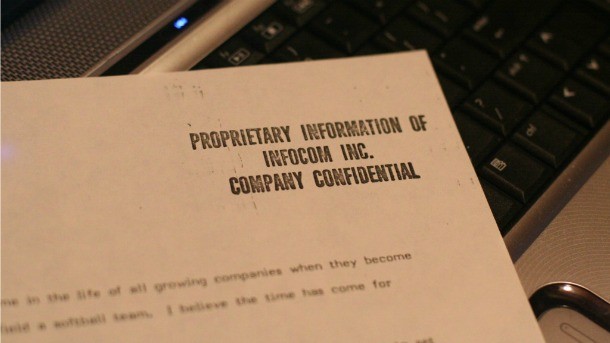Massive Collection Of Historic Infocom Documents Archived Online

In the scramble to preserve the collective history of video games, every retro advertisement or developer memo is its own treasure. With that in mind, technology archivist Jason Scott posted a massive treasure trove of Infocom company documents onto the Internet Archive today, covering a significant slice of video game antiquity.
In a detailed post on his weblog, Scott explained he came across the cache of design documents and other artifacts when visiting famed computer game developer Steve Meretzky, who has worked in the industry since the 1980s. Meretzky had saved thousands of documents from his days at Infocom, a publisher of text-adventure games, which Scott scanned while working on his interactive fiction documentary GET LAMP.
Though Meretzky’s archive is now housed at Stanford University, Scott plans to drop his high-res scans onto the Internet Archive, starting with an initial batch of 4,000 pages worth of material. The documents detail employee exchanges, map iterations, puzzle designs, artwork and text drafts, and playtester letters. Games covered in this initial posting include: Planetfall, Sorcerer, The Hitchhiker's Guide To The Galaxy, A Mind Forever Voyaging, Leather Goddesses Of Phobos, Stationfall, and Zork Zero: the Revenge of Megaboz.
“For someone involved in game design, this is priceless work,” Scott writes. “Unfettered by the crushing schedules and indie limits of the current industry, the designers at Infocom (including Steve, but not limited to him by any means) were able to really explore what made games so much fun, where the medium could go, and what choices could be made. It’s all here.”

The full 9,000-item archive also includes memos and other business documents covering a wide range of communications at Infocom, including details as minor as interoffice softball game preparations. Scott says in his post that he is still working to determine what he can put up without disclosing personal information, but there's already a ton of info to dig into. For a fascinating history lesson, click the link below.
[Source: ASCII by Jason Scott]
Our Take
Getting to see how developers design and pitch games is rare, and Scott provides a wealth of information for interested gamers to check out. Game preservation has received renewed focus recently with the planned opening of the National Video Game History Museum in Texas next month. For more details on the fight to save gaming's past, you can read Ben Reeve's thorough feature "Into Digital Dust."









